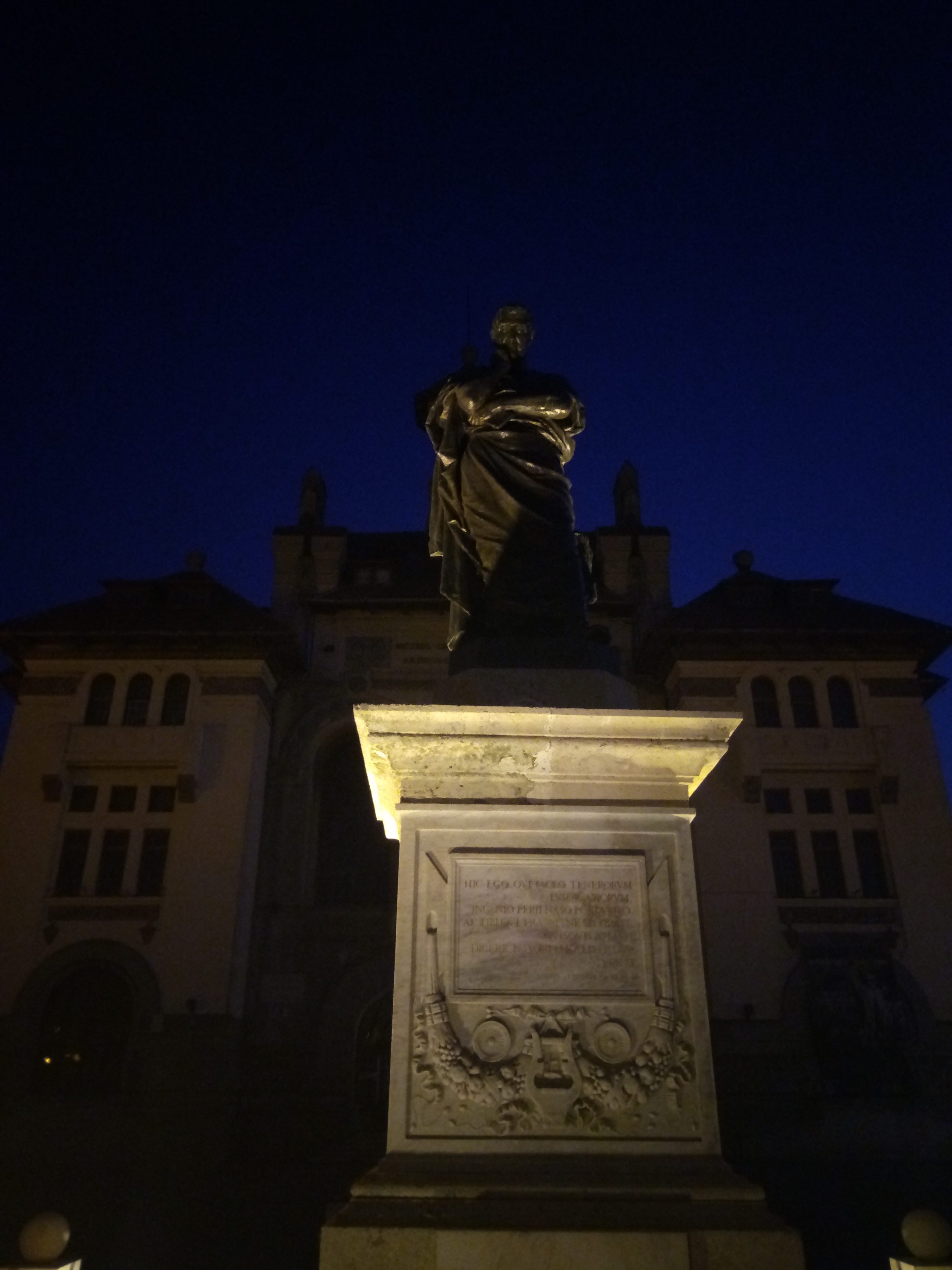Epistulae ex Ponto on:
[Wikipedia]
[Google]
[Amazon]
''Epistulae ex Ponto'' (''Letters from the Black Sea'') is a work of Ovid, in four books. It is a collection of letters describing Ovid's exile in Tomis (modern-day
 The themes of the letters are similar to those of ''
The themes of the letters are similar to those of ''
Constanța
Constanța (, ; ; rup, Custantsa; bg, Кюстенджа, Kyustendzha, or bg, Констанца, Konstantsa, label=none; el, Κωνστάντζα, Kōnstántza, or el, Κωνστάντια, Kōnstántia, label=none; tr, Köstence), histo ...
) written in elegiac couplets and addressed to his wife and friends. The first three books were composed between 12–13 AD, according to the general academic consensus: "none of these elegies contains references to events falling outside that time span". The fourth book is believed to have been published posthumously.
The poems
 The themes of the letters are similar to those of ''
The themes of the letters are similar to those of ''Tristia
The ''Tristia'' ("Sorrows" or "Lamentations") is a collection of letters written in elegiac couplets by the Augustan poet Ovid during his exile from Rome. Despite five books of his copious bewailing of his fate, the immediate cause of Augus ...
''. Ovid writes to his wife and friends about the grimness of his exile, his deteriorating state of health and the future of his literary works. The last surviving letter of the collection is addressed to an unnamed enemy. A recurring request to Ovid's named addressees in ''Epistulae ex Ponto'' remains his desire for a change of location from Tomis, which he repeatedly describes as "a town located in a war-stricken cultural wasteland on the remotest margins of empire". Recent scholarship has repeatedly identified discrepancies between Ovid's version and historical fact regarding Tomis.
While they explore similar themes, ''Epistulae ex Ponto'' differ from ''Tristia
The ''Tristia'' ("Sorrows" or "Lamentations") is a collection of letters written in elegiac couplets by the Augustan poet Ovid during his exile from Rome. Despite five books of his copious bewailing of his fate, the immediate cause of Augus ...
'' in epistolographic format, as they have named addressees. The individuals named include Paullus Fabius Maximus, Sextus Pompeius, and the brothers Marcus Valerius Messalla Messallinus
Marcus Valerius Messalla Messallinus (also spelled as Messalinus,Gagarin, ''The Oxford Encyclopedia of Ancient Greece and Rome: Academy Bible'', p.131 c. 36 BC – after AD 21) was a Roman senator who was elected consul for 3 BC.
Early life
Messa ...
and Marcus Aurelius Cotta Maximus Messalinus
Marcus Aurelius Cotta Maximus Messalinus (flourished second half of 1st century BC and first half of 1st century AD) was a Roman Senator who was a friend of the first two Roman emperors Augustus and Tiberius.Pettinger, ''The Republic in Danger: Dr ...
. Ovid's hopes rested largely on the genial character of Germanicus, nephew and adopted son of the emperor Tiberius, who is addressed or mentioned in several places.
Augustus
Caesar Augustus (born Gaius Octavius; 23 September 63 BC – 19 August AD 14), also known as Octavian, was the first Roman emperor; he reigned from 27 BC until his death in AD 14. He is known for being the founder of the Roman Pri ...
and Livia feature heavily in the collection, as they do in ''Tristia
The ''Tristia'' ("Sorrows" or "Lamentations") is a collection of letters written in elegiac couplets by the Augustan poet Ovid during his exile from Rome. Despite five books of his copious bewailing of his fate, the immediate cause of Augus ...
'', as absolute authorities over Ovid's hopes of his recalling to Rome or change of location for his relegation
In sports leagues, promotion and relegation is a process where teams are transferred between multiple divisions based on their performance for the completed season. Leagues that use promotion and relegation systems are often called open league ...
. Ovid acknowledges the Empress Livia as a potential ally to return home, describing her like a vestal virgin – "pudicarum Vesta matrum", "Vesta of chaste matrons". However, Augustus
Caesar Augustus (born Gaius Octavius; 23 September 63 BC – 19 August AD 14), also known as Octavian, was the first Roman emperor; he reigned from 27 BC until his death in AD 14. He is known for being the founder of the Roman Pri ...
' death and the death of his friend and frequent addressee, Paullus Fabius Maximus, discourage Ovid from hoping for a return. The collection ends on a sombre note, with a letter addressed to an unnamed enemy, accused of attempting to harm an already ruined Ovid.Ovid, ''Ex Ponto'' IV.XVI.50-52.
Structure
''Epistulae ex Ponto'' is divided in four books, all consisting of letters sent to different addressees. * Book I: letters to Brutus, Paullus Fabius Maximus, Rufinus, his wife, Cotta Maximus Messalinus, Publius Pomponius Graecinus, Messalinus, Severus,Flaccus Flaccus was a composer from the 2nd century BC, of whom little is known. He was either a freedman or a slave of one of Terence's patrons and wrote musical scores for Terence's comedies (playing or composing music was no occupation for a free citizen ...
.
* Book II: letters to Germanicus, Messalinus, Cotta Maximus Messalinus, Atticus, Salanus, Publius Pomponius Graecinus, Cotys of Thrace, Macer and Rufus.
* Book III: letters to his wife, Cotta Maximus Messalinus, Paullus Fabius Maximus, Rufinus, an unknown friend and a group of unknown friends.
* Book IV: letters to Sextus Pompeius, Cornelius Severus, Brutus, Vestalis, Suillius, Graecinus, Albinovanus, Gallio, Carus, Tuticanus and an unnamed enemy.
References
{{DEFAULTSORT:Epistulae Ex Ponto 1st-century Latin books Poetry by Ovid Moesia Ancient history of Romania Collections of letters